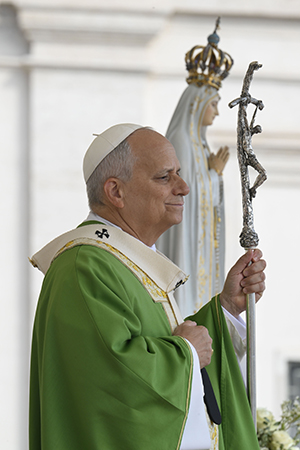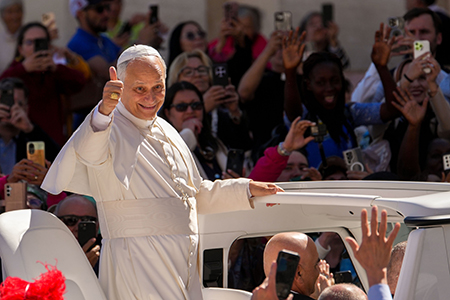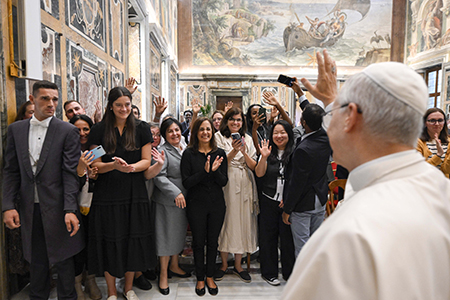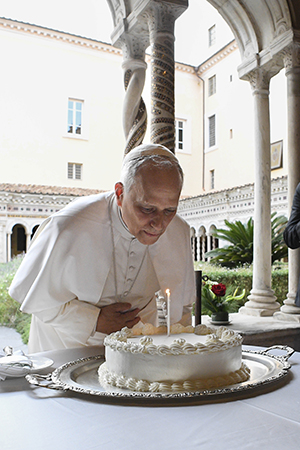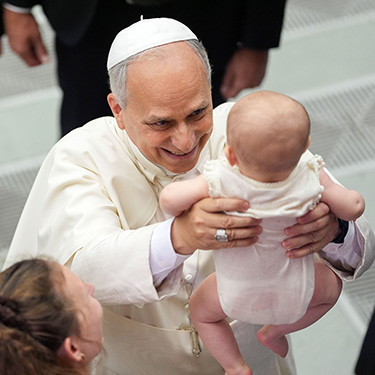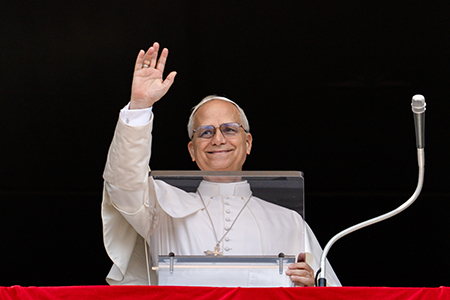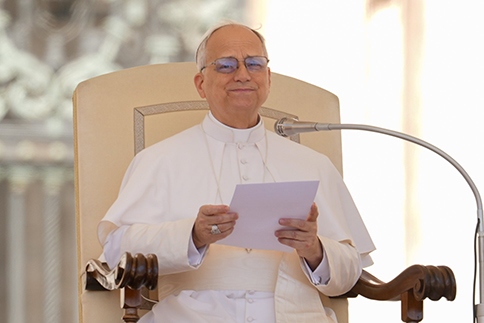By Carol Glatz
VATICAN CITY (CNS) – Pope Leo XIV thanked the Equestrian Order of the Holy Sepulchre of Jerusalem for supporting the Christian communities in the Holy Land, especially during the “tragic days of war.”
“In a world where arrogance and violence seem to prevail over charity, you are called to bear witness that life conquers death, that love conquers hatred, that forgiveness conquers vengeance, and that mercy and grace conquer sin,” he told members of the ancient Catholic chivalric order.
The pope met with more than 3,000 knights and dames of the Holy Sepulchre in the Vatican’s Paul VI Audience Hall Oct. 23 during their Jubilee pilgrimage to Rome. Cardinal Fernando Filoni, grand master of the order, was also present.
The order, a lay institution under the protection of the Holy See, supports the Latin Patriarchate of Jerusalem with prayers, financial assistance and regular pilgrimages. There are more than 30,000 members around the world.
Pope Leo thanked them for “the considerable help you give, quietly and without publicity, to the communities of the Holy Land, supporting the Latin Patriarchate of Jerusalem in its various activities: the seminary, schools, charitable work and assistance, humanitarian and educational projects, the university, aid to churches, with special interventions in times of greatest crisis, as was the case during COVID and the tragic days of war.”
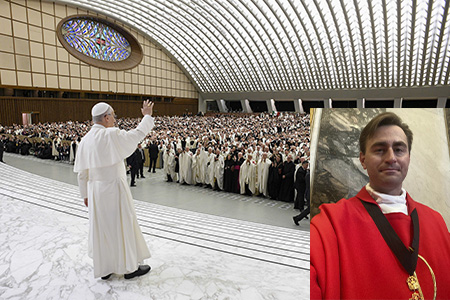
With concrete and varied assistance, he said, “you show that safeguarding the tomb of Christ does not simply mean preserving a historical, archaeological or artistic heritage, however important, but is supporting a church made of living stones, which was born around it and still lives today as an authentic sign of Paschal hope.”
“To pause at the Lord’s tomb means, in fact, to renew one’s faith in God who keeps his promises, whose power no human force can defeat,” the pope said.
“How often, thanks to your work, a glimmer of light reappears for individuals, families and entire communities who risk being overwhelmed by terrible tragedies at every level, particularly in the places where Jesus lived,” he said.
Pope Leo encouraged the order’s members to continue with their “task of being guardians of the tomb of Christ” with “the confidence of expectation, the zeal of charity and the joyful enthusiasm of hope.”

